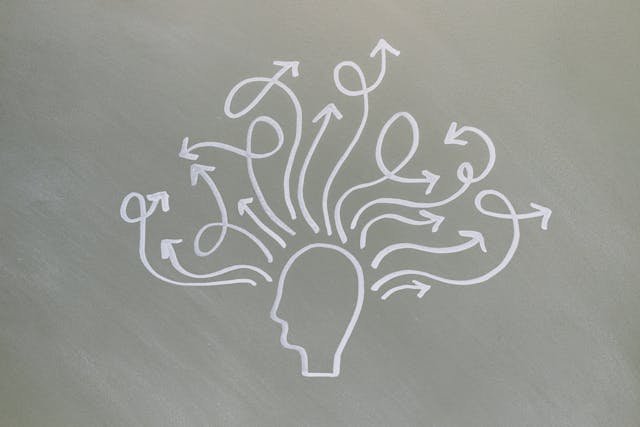Table of Contents
- Introduction
- What is Self-Reflection?
- The Benefits of Self-Reflection
- 1. Practicing Daily Mindfulness for Effective Self-Reflection
- 2. Asking the Right Questions
- 3. Using Journaling to Track Your Progress
- 4. Setting Intentions for a Purposeful Life
- 5. Creating a Regular Routine for Self-Reflection
- 6. Embracing Compassionate Self-Reflection
- Conclusion
- Key Takeaways
Introduction
In our fast-paced lives, it’s easy to fall into routines that leave little room for introspection or personal growth. However, taking time for self-reflection can be transformative. Self-reflection allows us to understand our motivations, align our actions with our values, and live with purpose. In this article, we’ll explore the art of self-reflection, how mindfulness enhances this process, and practical tips for leading a more intentional life.
What is Self-Reflection?
Self-reflection is the practice of looking inward to examine your thoughts, emotions, and behaviors. It involves assessing where you are in life, what’s driving your actions, and identifying any habits or beliefs that may need adjusting. By regularly reflecting, you gain deeper insights into yourself and can make conscious decisions that lead to a more fulfilling life.
The Benefits of Self-Reflection
- Enhanced Self-Awareness: Understanding your thoughts and feelings helps you recognize patterns, improve emotional intelligence, and connect with your authentic self.
- Better Decision-Making: When you’re clear on your values and priorities, you make choices that align with your long-term goals.
- Improved Relationships: Reflecting on your interactions helps you better understand and communicate with others, leading to healthier relationships.
- Greater Resilience: Recognizing your strengths and weaknesses equips you to face challenges with a balanced perspective.
1. Practicing Daily Mindfulness for Effective Self-Reflection
Mindfulness is the foundation of self-reflection. By practicing mindfulness, you become more aware of your present thoughts, emotions, and sensations. Start with simple mindfulness exercises like deep breathing, focusing on the present moment, or doing a brief body scan. These practices calm the mind and prepare you for introspection, allowing you to observe your inner world without judgment.
Tip: Set aside five minutes daily to close your eyes, focus on your breath, and let go of any distractions. This prepares you for deeper reflection.
2. Asking the Right Questions
Self-reflection is most effective when you ask insightful, open-ended questions. These can reveal the underlying reasons for your feelings, actions, and choices. Consider journaling answers to questions like:
- What am I grateful for today?
- Did I make choices that align with my values?
- What challenges did I face, and how did I respond?
- What are my goals, and am I taking steps toward them?
By asking reflective questions, you gain clarity on your priorities and identify areas where you can grow.
3. Using Journaling to Track Your Progress
Journaling is a powerful tool for self-reflection and mindfulness. Writing down your thoughts, experiences, and lessons each day helps solidify your insights and track personal growth over time. Journaling also provides a safe space for expressing emotions and exploring different aspects of your identity.
Tip: Dedicate a few minutes each morning or evening to jot down your reflections. Aim to write freely without judgment or editing, letting your thoughts flow naturally.
4. Setting Intentions for a Purposeful Life
Self-reflection enables you to set meaningful intentions. Unlike goals, which are often destination-focused, intentions are about living in alignment with your values every day. For instance, if one of your intentions is to be more present, you might focus on mindful breathing or reducing screen time during meals. Setting intentions helps you cultivate habits that foster personal growth and satisfaction.
Tip: Write down two to three intentions every week that reflect the kind of life you want to lead. Review these regularly to see how they shape your days.

5. Creating a Regular Routine for Self-Reflection
Like any habit, self-reflection becomes easier with consistency. Designate a specific time each day or week for your self-reflection practice. This could be in the morning before starting your day, or at night as a wind-down routine. A consistent practice helps you integrate reflection into your life, making it a natural part of your routine.
Tip: Start with a simple routine, like spending 10 minutes on Sunday evenings reflecting on the past week. Gradually increase this time as you become more comfortable with the process.
6. Embracing Compassionate Self-Reflection
One of the key elements of effective self-reflection is self-compassion. Avoid being overly critical of yourself during reflection. Instead, approach it with a kind, forgiving attitude. Understand that growth is a journey, and that mistakes are natural stepping stones.
Tip: Each time you self-reflect, practice gratitude by acknowledging one thing you did well. This positive reinforcement encourages self-acceptance and makes it easier to identify areas for improvement.
Conclusion
Cultivating mindfulness and practicing self-reflection are powerful steps toward living a more intentional life. By taking the time to understand your thoughts, emotions, and motivations, you can make decisions that align with your values and lead to greater fulfillment. Start with small daily practices and build from there. The journey toward mindfulness and self-awareness may require time and patience, but the rewards—improved well-being, clarity, and personal growth—are worth every effort.
Key Takeaways
Practice self-compassion as you reflect to encourage positive growth.
Mindfulness enhances self-reflection by keeping you grounded in the present.
Ask open-ended questions to gain deeper insights into your motivations.
Journaling helps you track growth and develop a regular reflection habit.
Set intentions that align with your values for a purposeful life.

